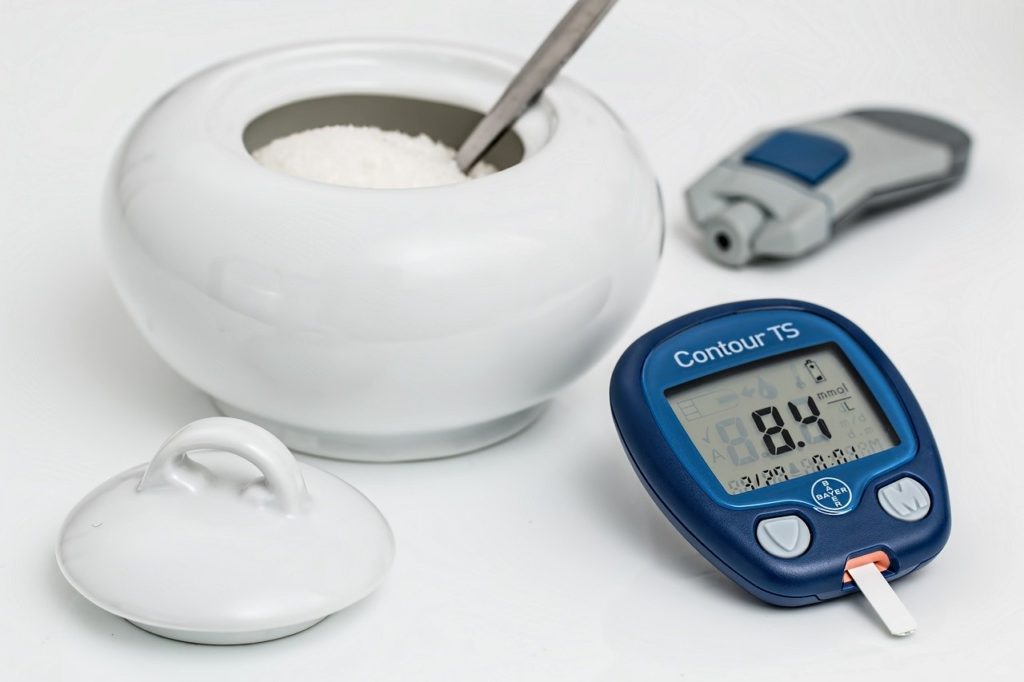Sugar has been an integral part of our collective diet ever since the start of the 13th century. The ooh’s, ahh’s, and umm’s that accompany sugar consumption is one feeling everyone loves to identify with. However, beyond the sweetness, there are dire consequences.
Sugar plays a significant role in your body. Without sugar in your body, you can barely lift a feather. Yeah, it’s all about energy.
Sugar affords every consumer the energy needed to get by every day. Trouble appears when sugar is overly consumed, whether directly or because it’s hidden in the foods we eat every day.
Before we delve into answering what happens to your body when you eat sugar, we will look at two things. First, how sugar crept into our world and became the center of our food lifestyle. Second, the significant role it plays in your body and how it does it.
How Sugar Became a Food Big Deal
From the Stone Age, where hunting and gathering was the order of the day, there were no processed sugars. Subsequntly, humans sourced sugar from fruits and honey. The latter was only a luxury at the time.
However, the consumption frequency was relatively low because fruits were and are still seasonal. You don’t get to have them all the time; you only enjoy them while they last. Honey is still quite a risky adventure to obtain.
Despite the scarcity of sugar at the time, the early humans were still very fond of it. Eventually, they transferred that fondness via the evolutionary train on to the generations that succeeded them. Today, even a newborn baby would cry at any bitter substance placed on its tongue and enjoy anything sweet.
How evolution tricked our brains into recognizing and falling in love with anything sweet is a conversation for another day. The point here is that, via evolution, humans have associated themselves with lots of sugars. From generation to generation, people hardly give up on it.
The consumption rate took a remarkable turn in the 13th century when sugar stretched its reach from Asia, where it where was first cultivated, over to Europe. Eventually, it landed in the Americas in the 16th century, and Brazil played host to the first sugar plantation.
Ever since, sugar became common, affordable, and a food sweetheart. A look at the consumption rate of sugar since 8000 BC from one study compiled by Hippocratesinst shows how alarming the figures have become.
The Major Role of Sugar in Your Body
The primary role of sugar is to provide your body with energy. But how does this happen?
Sucrose is the simplest form of sugar. It occurs nationally in most plants and is cultivated mostly from sugarcane or sugar beets. It’s the most popular form of sugar that we consume and hence, we will use it for this explanation.
When you consume sucrose, you provide your body with its two major sources of energy; glucose and fructose. These disaccharides molecules in their 1:1 ration, form sucrose. As a disaccharide, your body can’t absorb it in one fell swoop. Instead, enzymes in your small intestine break the sucrose down into their single-molecule form for your body to absorb.
Once complete, your body molecules transport the molecules to the liver, to process for delivery. Enabling the transportation of sugar to all parts of the body is a hormone called insulin. Insulin promotes glucose uptake into the body’s cells, where it is metabolized for instant energy.
Another essential role of sugar in your body comes in the storage of glucose. You see, the human body is an efficient machine. When you consume sugar, your body takes a substantial amount and converts it to energy. In the event of leftovers, however, your body stores the excess glucose as glycogen, with the intent to use it later.
In essence, what happens to your body when you eat sugar is that your body uses the required amount and stores the rest (excesses) to serve you latter. This is why you can still work when you’ve not had breakfast or lunch. Your body taps from the reserve stored as glycogen to provide you with energy.
We call this entire biochemical process glycogenesis. In glycogenesis, your body creates thousands of glycogen chains made up of glucose molecules via chemical bonding.
Away from this paramount benefit of sugar in your body, trouble lurks when you go on a sugar-consuming spree. Now it gets worse because sugar consumption is addictive. This translates to more health woes for your body system.
This leads us to the subject matter:
What Happens to Your Body When You Eat Sugar in Excess
Sugar consumed in moderation will not have debilitating effect on your overall health. However, when you consistently consume excess sugar, you’ll be exposing your body to numerous health risks and abnormalities.
You Gain Weight

When the consumption of sugar began to increase exponentially, health experts went digging to discover adverse effects. Indeed, several studies show that weight gain is strongly associated with the consumption of refined sugars. Refined or processed sugars are the ones you consume via carbonated soft drinks, beer, cookies, and generally, what is being termed as “junk” food.
This is how sugar leads to weight gain: Remember that excess sugar is stored as glycogen to be used later in the absence of further glucose supply. But this process only works when the body receives the amount of sugar it needs.
Your body takes the sugar it needs and converts the leftovers to glycogen. In contrast, if the body is flooded with more sugar than the liver can process, it stores the remnants as fatty acids in adipose tissues located in the thighs, arms, legs, and hips. This is how sugar causes weight gain.
You Can Become Addicted
Ask anyone who loves to drink at least a can of soda each day if it’s easy to quit. It is yet to be proven if a “sugar addiction” is real, however, you’d be equally hard-pressed to find people who can easily give up their sugary drink habit or sweet tooth.
The additional consumption of sugar doesn’t satiate your cravings. In fact, just the opposite occurs. It amplifies to craving. That one can of soda a day soon turns to two or even more. Eventually, it gets to the peak when you just can’t do without it at all.
How does this happen? When you eat sugar, your brain releases the feel-good hormone known as dopamine. With this release of dopamine, your body continues to crave the food to generate even more dopamine.
Your Risk of Diabetes Increases

Insulin is responsible for transporting glucose into your body’s cells, where they are metabolized for energy production. So whenever you ingest sugary foods containing glucose, your body produces insulin to do the needful transportation. However, excessive sugar consumption leads to the release of excess insulin, which can further result in insulin resistance.
When it gets to this point, your body receives more sugar than it can handle at once. Thus, it becomes difficult for it to absorb glucose faster for the release of energy. The excess glucose waiting in line to be absorbed then goes into your bloodstream and liver.
The aftermath of this chemical process when incorporating other factors like genetics is diabetes.
Your Risk of Heart Disease Increases
Generally speaking, the obese population is at the brink of heart disease. One precursor to obesity, besides genetics, is excess sugar consumption. The link is sufficient to assume a connection between excess obesity, eating an overabundance of sugar, and heart disease.
The obese aren’t the only ones prone to cardiovascular diseases. One study found that people who got their calories from processed sugars, especially soda drinks, are at as much as 38% more prone to heart disease than those who refrain.
It Can Lead to Depression
Numerous research studies have linked excess sugar to inflammation. Inflammation affects every part of your body; brain inclusive. In the end, when you binge on sugary foods, they trigger inflammatory responses in your body. Ultimately, stress, depression, and anxiety will become familiar challenges.
It Promotes Tooth Decay
The adverse effect of sugar is quite pervasive in the body, including your dental health. Here, it can only worsen over time if it’s not effectively addressed.
The continuous intake of sugar causes the acid it produces to react with the bacteria in your teeth. This reaction will spur the acid to dissolve and wreck your tooth enamel, and the result is tooth decay.
However, dental checkups and healthy practices can help you avoid this situation.
Recommendations
What happens to your body when you eat sugar, including the good and bad, is something you can control. In light of that, these recommendations are for you. So, to lead a healthier lifestyle in a world saturated with sweeteners, you should:
- Exercise daily to spend your calories rather than store them
- Mix your diet with protein and fibers for a balanced diet
- Once in awhile, choose vegan meals and ditch the sugars
- Endeavor to go on medical checkups as often as you can
- Focus on complex sugars, e.g., bread, starch, cereals, and vegetables, which offer more nutritional value than simple sugars
Conclusion
Sugar in and of itself won’t harm your body. In fact, the occasional sweet treat can help fend off a binge-fest on ‘forbidden’ desserts. It’s when sugar is consistently over-consumed in amounts the body cannot handle is when it becomes a health-related nightmare.
So feel free to treat yourself in moderation, but don’t go overboard.

